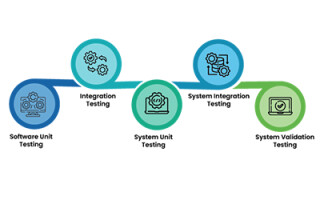Three digital trends driving businesses and consumer demand
July 29, 2017
Blog
Technology continues to grow and evolve exponentially and is rapidly affecting business developments and consumer demand.
Digital transformation has been affecting most industries around the world over the last decade by reshaping the way businesses operate; design and sell products and services; find and manage workforces; provide customer service; and more. Technology continues to grow and evolve exponentially now too, and is rapidly affecting business developments and consumer demand.
If you’re a designer or entrepreneur looking for ways to develop new software, services or computer-related products, it is important to stay up to date on all the latest trends so you can come up with cutting-edge creations and stay ahead of competitors. Read on for the lowdown on three of the top digital trends currently driving businesses and consumer demand in the United States and further afield.
Speech and voice recognition
One key area growing quickly right now is speech and voice recognition. Indeed, according to a BCC Research report, the global market for voice-recognition tech should reach close to $185 billion in 2021, with a compound annual growth rate (CAGR) of 12.1 percent. When it comes to speech analytics, the speaker-variation segment is also set to rise significantly, with the research firm tipping the sector will have a CAGR in the years leading up to 2021 of 17.6 percent.
Multiple factors are said to be driving the growth in these areas of technology. For starters, lower costs are making a difference, as are productivity gains, enhanced processing power, and new developments (and an increased ease of use) in speech and machine learning.
In particular, as people continue to adopt mobile- and cloud-based computer tech around the globe, speech recognition software is growing in line with demand. This is the case especially in the areas of healthcare and consumer industries, where automated and smart applications are rapidly being utilized. Technology giants like Google, Apple, and Microsoft are also taking advantage of gains in speech recognition software right now.
As far as voice-recognition goes, much of the growth in the market is coming from a rise in mobile-banking applications, as more and more firms install biometric security. Government departments are increasingly utilizing voice-recognition technology, too – the U.S. military, for instance, is investing in voice-based platforms to increase precision and operational efficiency in numerous areas. Voice-activated mobile search is another field that’s growing rapidly; plus, more money is being spent on advertising services that make use of voice activation.
Artificial intelligence and automation
While the concept of artificial intelligence has been incorporated into sci-fi books, movies, and TV shows for decades, the time has arrived when AI is being used, often, for real-world applications. Automation is also being used more and more as technology evolves.
In today’s world, machines are getting better at learning about their environments and adapting to suit, and as a result it appears the rise in AI and automation will be one of the most disruptive forces in internet tech in the future. For example, while we have already seen automation replace numerous low-skilled jobs around the world, soon enough AIs will work collaboratively with human designers to come up with solutions to complex problems. This will be across diverse fields.
Customer service is another area where artificial intelligence will be used more in the future, especially when it comes to online applications. Chatbots are already being used to help consumers connect with brands digitally, and as technology grows these bots will get better at understanding the context of conversations and will converse more naturally with people.
Automation will increasingly creep into the development of smart phones and other internet-enabled gadgets too. It’s likely that devices will soon be able to learn the patterns and preferences of users, without needing to have the information inputted manually. In turn, this will allow people to receive better, and more accurate, suggestions and recommendations from their tech products.
Artificial intelligence is also set to shake up the fast-food industry, with self-serve kiosks becoming a growth area. AI is being used to great effect in the areas of sales, too (e.g., automatic follow-up reminders, data-driven insights, and scheduling), and in administration (predictions based on data, the creation of reports and other types of documents, and the handling of meeting requests, to name a few).
Big data
Lastly, while big data has had a huge impact on the world for many years now, in 2017 and to the future, the importance of this tech is going to become even more apparent. Until recently, most companies haven’t been using data effectively or often, usually due to a lack of understanding or analytical knowledge. Now though, as it continues to become cheaper, easier, and simpler than ever to collect, analyze and apply data and analytics, big data will really come to the forefront of business and design.
Data can, for instance, be used by firms to understand what customers are looking for, where and when they shop, how they think, and how they view particular brands, products, and services. Big data is also going to be key when it comes to analyzing and streamlining processes, making decisions, and delivering the ultimate customer-service experience to clients.




